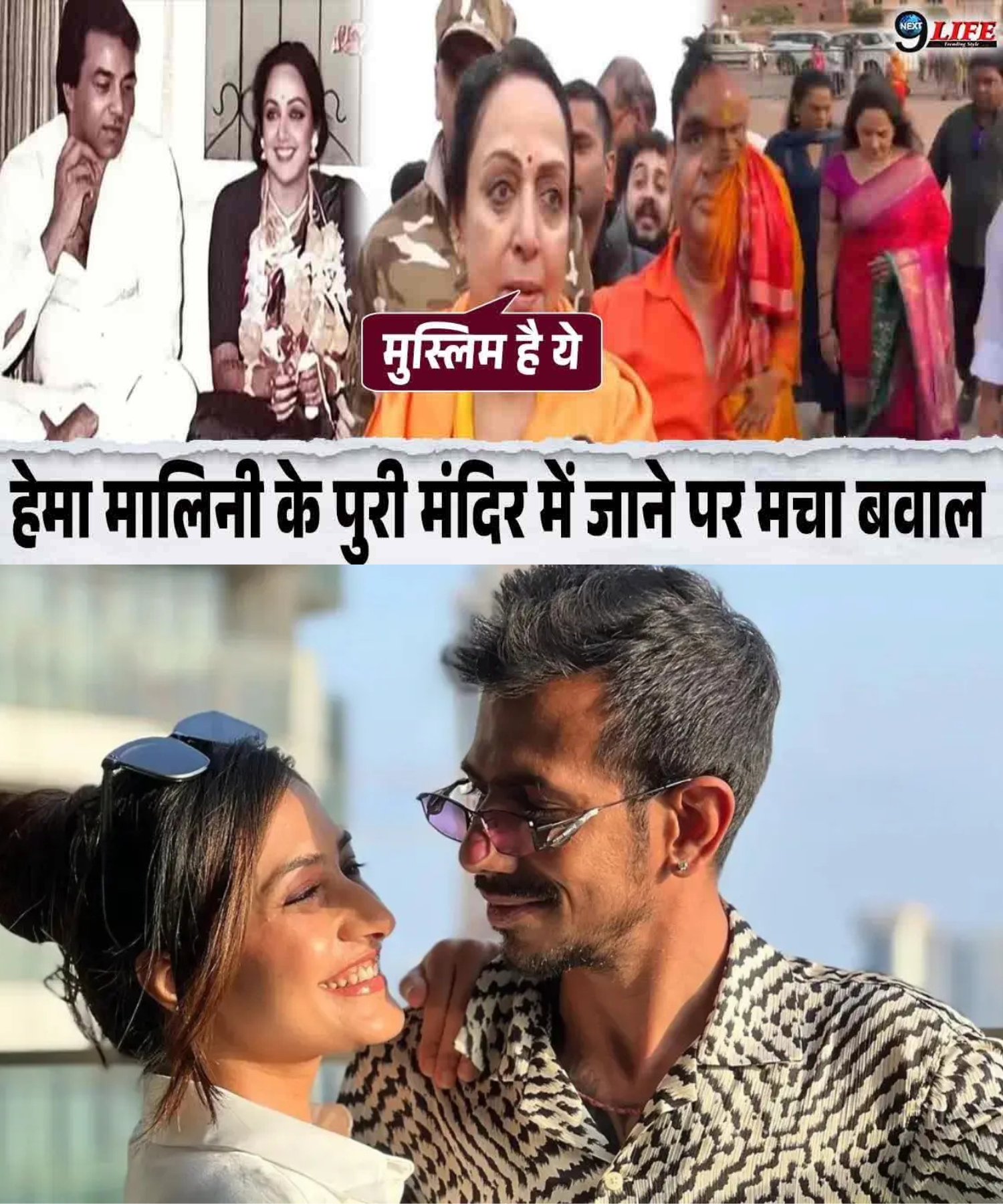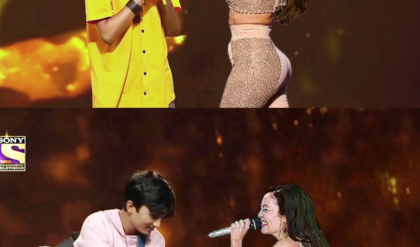Dream Girl Hema Malini’s Visit to Puri Jagannath Temple Sparks Controversy: A Closer Look at the Issue
Hema Malini, the legendary Bollywood actress and politician, found herself at the center of controversy after her recent visit to the sacred Jagannath Temple in Puri, Odisha. The temple, which is one of the holiest Hindu shrines, has strict entry regulations that allow only Hindus inside its premises. Reports of her visit have ignited debates across social and religious circles, with allegations that her presence may have violated temple customs, thereby hurting Hindu sentiments. This article delves into the incident, its implications, and the broader discourse surrounding religious traditions and inclusivity in India.
Background of the Jagannath Temple
The Jagannath Temple in Puri is one of the four sacred Char Dham pilgrimage sites in Hinduism. The temple, dedicated to Lord Jagannath, a form of Lord Vishnu, holds immense significance for millions of Hindu devotees. One of its longstanding traditions is the restriction of entry to only those who identify as Hindus, a rule that has been upheld despite ongoing debates on religious inclusivity.
The temple authorities and servitors (sevayats) have historically been vigilant about enforcing this rule, and there have been instances where non-Hindus, including prominent figures, were either denied entry or asked to leave. The belief behind this restriction is rooted in historical and religious practices passed down for centuries.
The Controversy: What Happened?
Hema Malini, a Bharatiya Janata Party (BJP) MP and a well-known devotee of Hinduism, visited the Puri Jagannath Temple as part of her spiritual journey. However, soon after her visit, concerns were raised about her eligibility to enter the temple premises.
Critics and some religious groups questioned whether she had formally declared herself as Hindu before entering the temple. Given that she comes from an entertainment background and was previously married to Dharmendra, who identifies as a Muslim but follows Hindu practices, some questioned her religious status. This led to allegations that her visit violated the temple’s guidelines, which strictly prohibit entry to non-Hindus.

Reactions and Public Outrage
The controversy quickly escalated as religious groups, social media users, and political commentators began debating the issue. While some staunch defenders of temple traditions condemned the alleged violation, others viewed the incident as an example of religious rigidity that goes against Hinduism’s inclusive ethos.
Hindu Groups and Priests’ Response
Several priests and traditionalists in Puri expressed their outrage over the incident. Some demanded clarification from the temple authorities regarding whether Hema Malini had been verified as a Hindu before her entry. Others insisted that the sanctity of the temple must be maintained at all costs and that any violation of its long-standing traditions would be unacceptable.
Some conservative Hindu groups took an even stricter stance, stating that such incidents could set a dangerous precedent where religious norms are disregarded for celebrities or political figures.
Support for Hema Malini
On the other hand, a large section of the public and political leaders came forward to support Hema Malini. Many argued that she has been an ardent follower of Hinduism, frequently performing religious rituals and advocating Hindu values. BJP leaders and her supporters contended that questioning her Hindu identity was baseless and disrespectful.
Additionally, some social commentators argued that the temple’s entry rules should evolve with time. They emphasized that in a diverse and democratic country like India, religious institutions should be more inclusive rather than restrictive.
Historical Precedents: Similar Incidents in the Past
This is not the first time a controversy has erupted over non-Hindus or suspected non-Hindus entering the Jagannath Temple. Over the years, several prominent figures have faced similar scrutiny.
Indira Gandhi’s Entry Ban (1984): Former Prime Minister Indira Gandhi was reportedly denied entry into the temple because she had married a Parsi, Feroze Gandhi. This incident had sparked a major political and religious debate at the time.
Bollywood Celebrities & Foreign Dignitaries: Several foreign dignitaries and Bollywood celebrities have been either denied entry or unknowingly stirred controversy by visiting the temple. Some of them later issued clarifications or apologies.
The Case of Religious Converts: There have also been cases of Hindus who converted to other religions but later reclaimed their Hindu identity facing restrictions on temple entry.
The Legal and Ethical Debate
The controversy over temple entry restrictions raises broader legal and ethical questions about religious freedom and discrimination. India’s Constitution guarantees freedom of religion under Article 25, allowing individuals to practice, propagate, and profess their faith. However, Article 26 also allows religious institutions to manage their own affairs, which includes setting rules about temple entry.
Legal experts argue that while the Jagannath Temple has the right to enforce its traditions, it should not be at the cost of discrimination or subjective interpretations of religious identity. Some believe that legal intervention is necessary to establish clear guidelines on who qualifies as a Hindu for temple entry purposes.
The Way Forward: Reform or Status Quo?
The incident involving Hema Malini has reignited debates on whether such traditional restrictions should be reconsidered in a modern, evolving society. Here are some possible ways forward:
Greater Clarity on Religious Identity:
- Temples could establish a more transparent process for verifying religious identity rather than making subjective judgments.
Revisiting Entry Rules:
- The government or temple authorities could re-evaluate the relevance of restrictive entry policies in a contemporary India.
Inclusivity vs. Tradition:
- A balance needs to be struck between respecting religious traditions and promoting inclusivity.
Legal Frameworks:
- A standardized legal framework could prevent arbitrary exclusions based on personal interpretations of religious identity.
Conclusion
Hema Malini’s visit to the Puri Jagannath Temple has once again highlighted the complexities surrounding religious traditions, identity, and inclusivity in India. While many argue for the preservation of sacred customs, others call for reforms that align with a modern, democratic society. Regardless of the stance one takes, the controversy serves as an important reflection of India’s ongoing dialogue between tradition and change.
As the debate continues, it remains to be seen whether this incident will lead to significant policy shifts or whether temple traditions will remain firmly rooted in their historical practices. One thing is certain—faith, identity, and culture will always be central to India’s socio-political landscape.
News
Vivansh World Record: 4-Month-Old Baby Makes History, Everyone Shocked! Breaking News
Vivansh World Record: 4-Month-Old Baby Makes History, Everyone Shocked! In a world where records are set by seasoned athletes, technological prodigies, and lifelong achievers, a tiny miracle has stunned the globe. At just four months old, baby Vivansh Rajendra…
Ram Kapoor’s Wife Gautami Lashed Out Ekta Kapoor For Dig At Her Husband’s Weight Loss
Gautami Kapoor Shuts Down Ekta Kapoor’s Remarks on Ram Kapoor’s Weight Loss: A Bold Statement on Health, Respect, and Love In the glitzy world of Indian television, where image often overshadows essence, one power couple just reminded the world…
Terrible News: Popular TV Actor Aasif Sheikh Involved in an Accident
Terrible News: Popular TV Actor Aasif Sheikh Involved in an Accident In a recent and alarming incident, renowned television actor Aasif Sheikh, best known for his role as Vibhuti Narayan Mishra in the popular sitcom Bhabiji Ghar Par Hain,…
Mohammad Faiz and Neha Kakkar – Superstar Singer Season 2
Mohammad Faiz and Neha Kakkar – A Magical Journey on Superstar Singer Season 2 In the realm of reality television, few shows manage to capture hearts across generations the way Superstar Singer has. With a focus on young singing…
Top 6 Nutrients to Stop Leg Weakness in Seniors – Fast!
Top 6 Nutrients to Stop Leg Weakness in Seniors – Fast! As we age, maintaining strength and mobility becomes increasingly essential to living independently and enjoying a high quality of life. One common complaint among seniors is leg weakness,…
Top 10 Foods to Prevent Leg Cramps in Seniors — Even at Night!
Top 10 Foods to Prevent Leg Cramps in Seniors — Even at Night! Leg cramps are painful, involuntary muscle contractions that can strike without warning—often at night, disrupting sleep and affecting quality of life. Seniors are especially vulnerable…
End of content
No more pages to load











